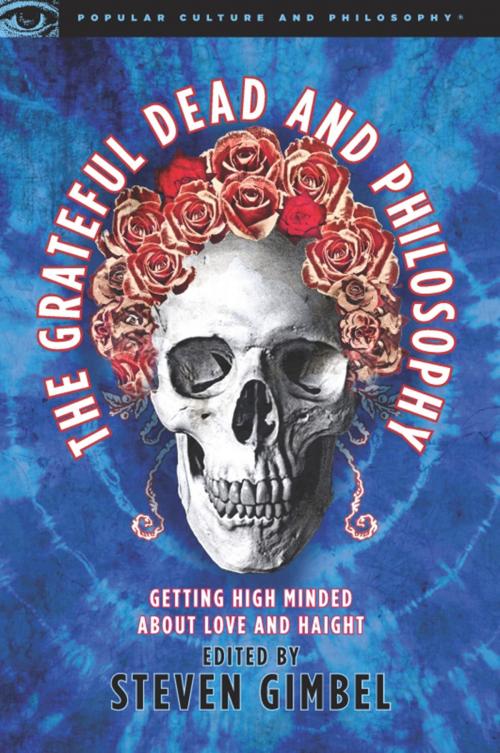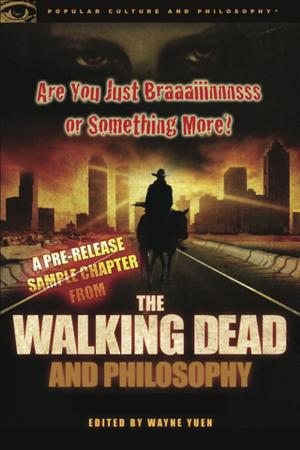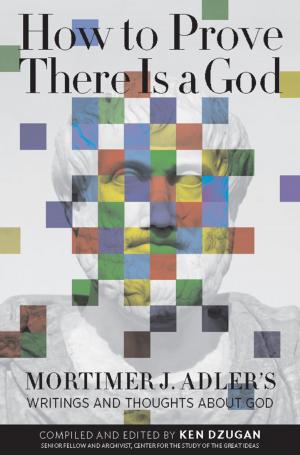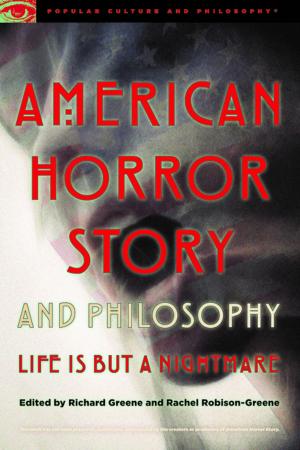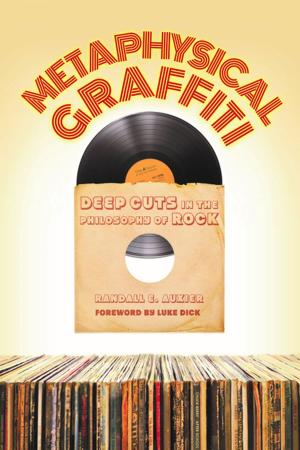The Grateful Dead and Philosophy
Getting High Minded about Love and Haight
Nonfiction, Religion & Spirituality, Philosophy, Ethics & Moral Philosophy| Author: | Steve Gimbel | ISBN: | 9780812697445 |
| Publisher: | Open Court | Publication: | April 15, 2011 |
| Imprint: | Open Court | Language: | English |
| Author: | Steve Gimbel |
| ISBN: | 9780812697445 |
| Publisher: | Open Court |
| Publication: | April 15, 2011 |
| Imprint: | Open Court |
| Language: | English |
This book is another one of those late-night Grateful Dead inspired dorm room conversations with friends . . . only this time it’s your professors sitting cross-legged on the floor asking if anyone else wants to order a pizza.
The Grateful Dead emerged from the San Francisco counter-culture movement of the late 1960s to become an American icon. Part of the reason they remain an institution four decades later is that they and their fans, the Deadheads, embody deviation from social, artistic, and industry norms. From the beginning, the Grateful Dead has represented rethinking what we do and how we do it. Their long, free-form jams stood in stark contrast to the three minute, radio friendly, formulaic rock that preceded them. Allowing their fans to tape and trade recordings of shows and distributing concert tickets themselves bucked the corporate control of popular music. The use of mind-altering chemicals questioned the nature of consciousness and reality. The practice of touring,” following the band from city to city, living as modern day nomads presented a model distinct from the work-a-day option assumed by most in our corporate dominated culture. As a result, Deadheads are a quite introspective lot.
The Grateful Dead and Philosophy contains essays from twenty professional philosophers whose love of the music and scene have led them to reflect on different philosophical questions that arise from the enigma that is the Grateful Dead. Coming from a variety of perspectives, ancient and modern, Eastern and Western, The Grateful Dead and Philosophy considers how the Grateful Dead fits into the broader trends of American thought running through pragmatism and the Beat poets, how the parking lot scene with its tie-dyed t-shirt and veggie burrito vendors was both a rejection and embrace of capitalism, and whether Jerry Garcia and the Buddha were more than just a couple of fat guys talking about peace. The lyrics of the Grateful Dead’s many songs are also the basis for several essays considering questions of fate and freedom, the nature-nurture debate, and gamblers’ ethics.
This book is another one of those late-night Grateful Dead inspired dorm room conversations with friends . . . only this time it’s your professors sitting cross-legged on the floor asking if anyone else wants to order a pizza.
The Grateful Dead emerged from the San Francisco counter-culture movement of the late 1960s to become an American icon. Part of the reason they remain an institution four decades later is that they and their fans, the Deadheads, embody deviation from social, artistic, and industry norms. From the beginning, the Grateful Dead has represented rethinking what we do and how we do it. Their long, free-form jams stood in stark contrast to the three minute, radio friendly, formulaic rock that preceded them. Allowing their fans to tape and trade recordings of shows and distributing concert tickets themselves bucked the corporate control of popular music. The use of mind-altering chemicals questioned the nature of consciousness and reality. The practice of touring,” following the band from city to city, living as modern day nomads presented a model distinct from the work-a-day option assumed by most in our corporate dominated culture. As a result, Deadheads are a quite introspective lot.
The Grateful Dead and Philosophy contains essays from twenty professional philosophers whose love of the music and scene have led them to reflect on different philosophical questions that arise from the enigma that is the Grateful Dead. Coming from a variety of perspectives, ancient and modern, Eastern and Western, The Grateful Dead and Philosophy considers how the Grateful Dead fits into the broader trends of American thought running through pragmatism and the Beat poets, how the parking lot scene with its tie-dyed t-shirt and veggie burrito vendors was both a rejection and embrace of capitalism, and whether Jerry Garcia and the Buddha were more than just a couple of fat guys talking about peace. The lyrics of the Grateful Dead’s many songs are also the basis for several essays considering questions of fate and freedom, the nature-nurture debate, and gamblers’ ethics.
